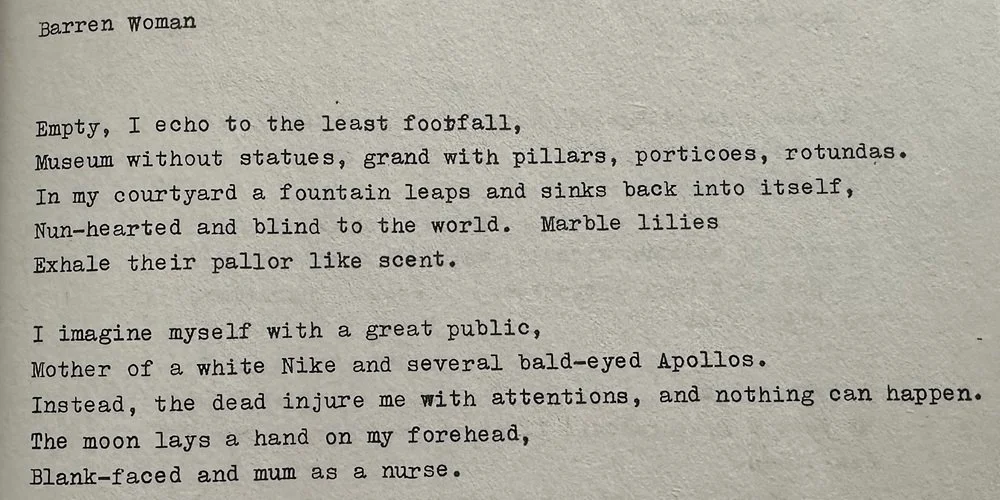In the second stanza, the speaker imagines herself overcoming her barrenness and becoming a mother to children like Greek gods. Nike, the goddess of victory, and Apollo, the god of medicine and poetry, offers hope in the speaker’s inability to find fertility. With the speaker’s internal and external struggles lasting for long periods of time, the longing for victory and healing over them is astounding and rejuvenating. As someone who has found Greek mythology a sanctuary from the real world, I find hope in the speaker’s desire to be a mother.
As a queer man, I have related to this poem in my own reality. As someone who cannot have children naturally, I related to the speaker and her struggles for parenthood. Although I have many options, ahead of me, only time will tell which path will be right for me and my fiancé.
It is easy to feel obsolete in a world that was not made for you. While I don’t fit the mold of a stereotypical man, I realize I am not the one “blind to the world” and its intersecting pathways. Although the speaker struggles with grasping a strong sense of self, it offers me hope in regaining my identity as a queer man and a writer.
The empty page is often more forgiving than the rest of the world. Seeking shelter from oneself when the rest of the world drags one down is not always enough to escape it. I understand Plath as someone who has faced the darkest parts of human experience. The poem offers insight into Plath’s suicide and how the feelings of inadequacy played their roles. Hughs pays homage to how her mother “used every emotional experience as if it were a scrap of material that could be pieced together to make a wonderful dress,” which highlights the mental artistry of her mother’s work.
I often wonder how my creative work will live on after I die. Plath’s daughter acknowledges through her mother’s tragic downfall, “The art was not to fall”. Like any creative medium, its artistry is immortal even when the creators themselves are not.
People hold and harbor feelings of barrenness within them. No matter how barren they feel, they ought to march on—water those struggling areas—in hopes they will start to grow into unspeakable realms of vibrant blooms and blossoms.

